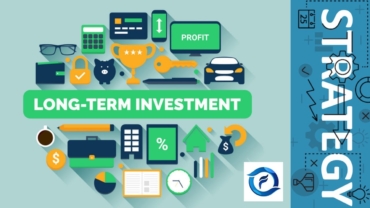In the pursuit of long-term financial security, developing effective investment plans is crucial. Long-term investment strategies provide individuals with the opportunity to grow their wealth steadily, achieve financial goals, and secure their future. In this comprehensive guide, we will explore the concept of long-term investment plans, their benefits, key considerations, and strategies for success. Whether you’re a seasoned investor or new to the world of investing, understanding the importance of long-term investment plans can help you make informed decisions, optimize returns, and build a solid foundation for your financial future.
- The Importance of Long-Term Investment Plans: Long-term investment plans are essential for achieving financial security and meeting long-term goals. We’ll discuss why taking a long-term perspective is crucial in investing, highlighting the potential benefits of compounding returns, time diversification, and weathering market fluctuations. Understanding the power of long-term investments can help individuals make informed decisions and stay focused on their objectives.
- Setting Financial Goals: Before developing a long-term investment plan, it’s important to set clear financial goals. We’ll explore the process of defining goals, whether it’s saving for retirement, funding education, buying a home, or achieving financial independence. Establishing specific, measurable, achievable, relevant, and time-bound (SMART) goals helps guide investment strategies and ensures alignment with individual aspirations.
- Asset Allocation and Portfolio Diversification: Effective long-term investment plans involve strategic asset allocation and portfolio diversification. We’ll discuss the importance of spreading investments across different asset classes, such as stocks, bonds, real estate, and commodities. Understanding risk tolerance, time horizon, and investment objectives is crucial when determining the appropriate asset allocation and diversification strategy.
- Investment Vehicles for Long-Term Growth: We’ll explore various investment vehicles that align with long-term investment plans, such as mutual funds, index funds, exchange-traded funds (ETFs), and retirement accounts like IRAs and 401(k)s. Each investment vehicle offers unique advantages and considerations in terms of fees, tax implications, and investment options. Understanding these options helps individuals select the most suitable vehicles for their long-term investment strategies.
- Risk Management and Monitoring: Managing risk is an integral part of long-term investment plans. We’ll discuss risk management techniques, including diversification, periodic portfolio rebalancing, and staying informed about market trends and economic indicators. Regularly monitoring investment performance and making adjustments when necessary ensures that the investment plan remains aligned with financial goals and changing market conditions.
- Reviewing and Adjusting Investment Plans: Investment plans should be reviewed periodically to ensure they remain on track. We’ll discuss the importance of reviewing investment performance, assessing progress toward financial goals, and making adjustments as needed. Life events, changes in personal circumstances, and shifts in market conditions may require modifications to the long-term investment plan to maintain its effectiveness.
Developing and these plans are essential for building financial security and achieving long-term goals. By taking a proactive approach, setting clear objectives, diversifying portfolios, and staying committed to a long-term perspective, individuals can optimize their investment returns and secure their financial future. It is important to regularly review and adjust investment plans to ensure they remain aligned with changing circumstances and market conditions. Seeking guidance from financial advisors can provide valuable insights and personalized strategies. With a well-designed long-term investment plan, individuals can navigate the dynamic world of investing with confidence and build a solid foundation for their financial well-being.

